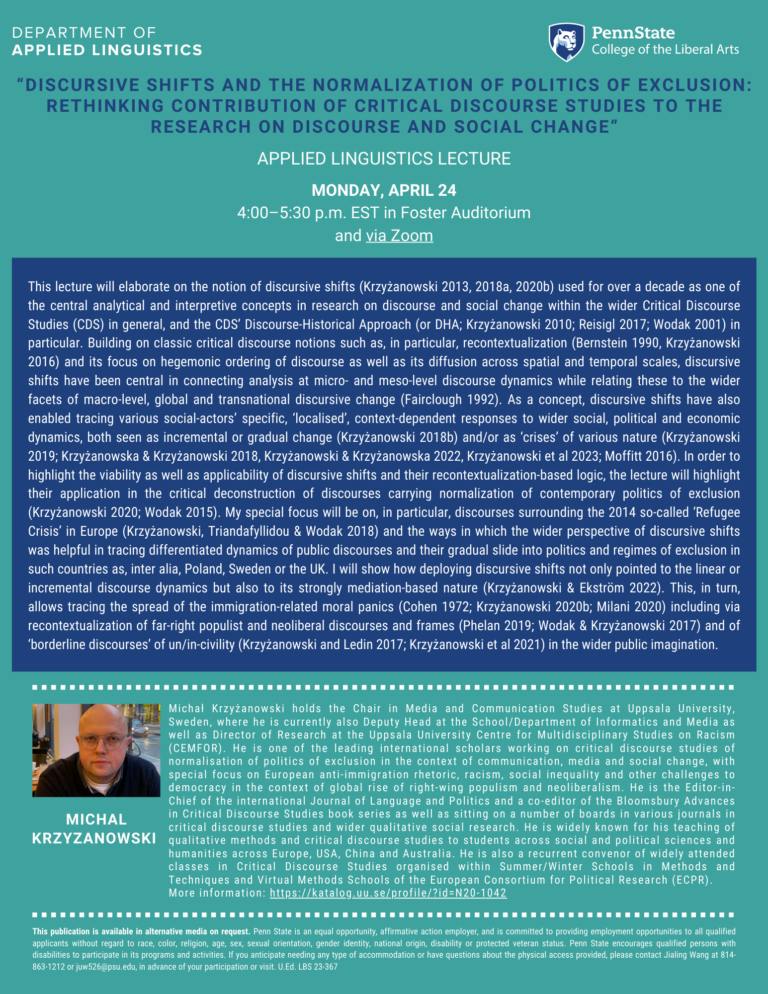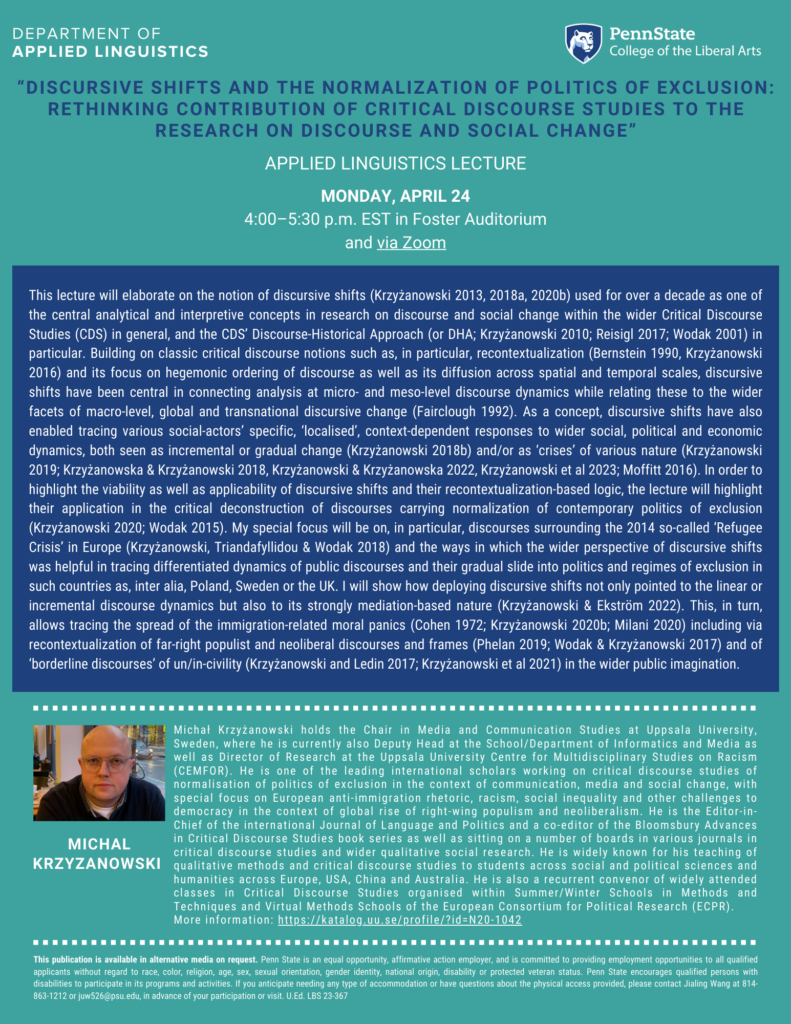This lecture will elaborate on the notion of discursive shifts (Krzyżanowski 2013, 2018a, 2020b) used for over a decade as one of the central analytical and interpretive concepts in research on discourse and social change within the wider Critical Discourse Studies (CDS) in general, and the CDS’ Discourse-Historical Approach (or DHA; Krzyżanowski 2010; Reisigl 2017; Wodak 2001) in particular. Building on classic critical discourse notions such as, in particular, recontextualization (Bernstein 1990, Krzyżanowski 2016) and its focus on hegemonic ordering of discourse as well as its diffusion across spatial and temporal scales, discursive shifts have been central in connecting analysis at micro- and meso-level discourse dynamics while relating these to the wider facets of macro-level, global and transnational discursive change (Fairclough 1992). As a concept, discursive shifts have also enabled tracing various social-actors’ specific, ‘localised’, context-dependent responses to wider social, political and economic dynamics, both seen as incremental or gradual change (Krzyżanowski 2018b) and/or as ‘crises’ of various nature (Krzyżanowski 2019; Krzyżanowska & Krzyżanowski 2018, Krzyżanowski & Krzyżanowska 2022, Krzyżanowski et al 2023; Moffitt 2016). In order to highlight the viability as well as applicability of discursive shifts and their recontextualization-based logic, the lecture will highlight their application in the critical deconstruction of discourses carrying normalization of contemporary politics of exclusion (Krzyżanowski 2020; Wodak 2015). My special focus will be on, in particular, discourses surrounding the 2014 so-called ‘Refugee Crisis’ in Europe (Krzyżanowski, Triandafyllidou and Wodak 2018) and the ways in which the wider perspective of discursive shifts was helpful in tracing differentiated dynamics of public discourses and their gradual slide into politics and regimes of exclusion in such countries as, inter alia, Poland, Sweden or the UK. I will show how deploying discursive shifts not only pointed to the linear or incremental discourse dynamics but also to its strongly mediation-based nature (Krzyżanowski & Ekström 2022). This, in turn, allows tracing the spread of the immigration-related moral panics (Cohen 1972; Krzyżanowski 2020b; Milani 2020) including via recontextualization of far-right populist and neoliberal discourses and frames (Phelan 2019; Wodak & Krzyżanowski 2017) and of ‘borderline discourses’ of un/in-civility (Krzyżanowski and Ledin 2017; Krzyżanowski et al 2021) in the wider public imagination.
Click the Register button to virtually attend the colloquium.


Occurrences
-
Monday, April 24, 2023, 4:00 p.m.–5:30 p.m.